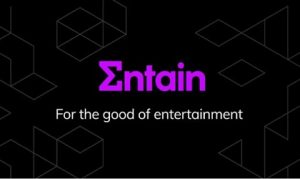British sports betting and gambling company GVC Holdings PLC (LSE:GVC) has announced it will be renamed Entain plc. The move, which is subject to shareholder approval, reflects the Isle of Man-based group’s ambition to be “the world-leader in sports betting and gaming entertainment.”
The London-listed firm has announced several major changes to its future operations, among them is to operate 100 percent across regulated markets by the close of 2023, with 99 percent of revenue derived from regulated markets by this year’s end.
“We are absolutely committed to pursuing the highest standards of corporate governance.”
Proceeds from regulated or regulating markets currently account for approximately 96 percent of the group’s overall revenue.
Player protection:

Other targeted initiatives include having player protection at the forefront of its operations via the launch of the Advanced Responsibility & Care (ARC) program. The FTSE100 online gambling group will additionally launch the Entain Foundation, a fund committed to donating more than £100m ($131.9m) to local communities, problem gambling research and grassroots sports initiatives, over the next five years.
Chief Executive Officer for GVC, Shay Segev commented on the company’s new identity in an official press release…
“Today marks an exciting new chapter for the Group, and an important step forward in achieving our ambition of being the world leader in sports betting and gaming. Under our new corporate identity, we will continue to use our unique technology platform to build on the exceptionally strong momentum that we have in our existing markets, grow into new markets, reach new audiences, enhance the customer experience, and provide industry-leading levels of player protection.
“We are absolutely committed to pursuing the highest standards of corporate governance, to providing outstanding career development opportunities for our colleagues, and to supporting the communities in which we operate. Our clear strategy of prioritising sustainability and growth will allow us to achieve these goals, thereby providing long-term value for all of our stakeholders.”
Key areas:
The company outlined four key areas of growth opportunities that it says can significantly increase the scale of the group over the next 3 to 5 years. They include the fast-growing US market, growth in its core markets, entering new markets, including expansion into new regulated markets through organic opportunities as well as M&A, and expanding to new audiences.
Operating both online and in the retail sector, GVC Holdings is one of the world’s largest sports-betting and gaming groups. Its comprehensive portfolio of established brands; Sports Brands include bwin, Coral, Crystalbet, Eurobet, Ladbrokes, Neds and Sportingbet; Gaming Brands include CasinoClub, Foxy Bingo, Gala, Gioco Digitale, partypoker and PartyCasino.
BetMGM:

To take advantage of the sports betting and gaming opportunity in the US, the group also entered into a joint venture with MGM Resorts International (NYSE: MGM) in late July this year. Currently, the BetMGM brand has a presence in nine US states, with plans for that number to grow significantly by the end of 2021.
And while the mobile-friendly sports betting service achieved approximately 18 percent market share in New Jersey’s iGaming space over the second quarter of 2020, BetMGM lags behind (market shares) online heavyweights DraftKings and Flutter Entertainment’s FanDuel on the sports betting front.
Making moves:
However, there are plenty of reasons for optimism. On September 3, 2020, the NFL’s Detroit Lions named BetMGM as one of the team’s official sports betting partners and a few days later announced that it had become an official sports betting partner of the Las Vegas Raiders, an extension of an existing multiyear partnership between MGM Resorts and the football team.
Not to mention MGM and GVC’s $200 million commitment in July 2018 to Roar Digital, an equal partnership between the two gaming companies. The two Roar Digital brands, BetMGM and PartyPoker will reportedly be operating in 11 US states by the end of 2020 and has market access agreements in place that cover half of the nation’s population, according to a source.



